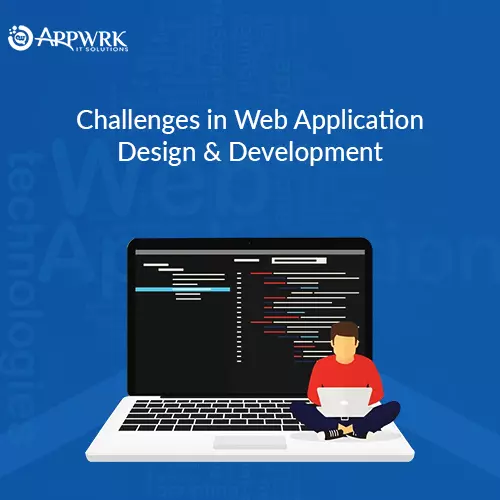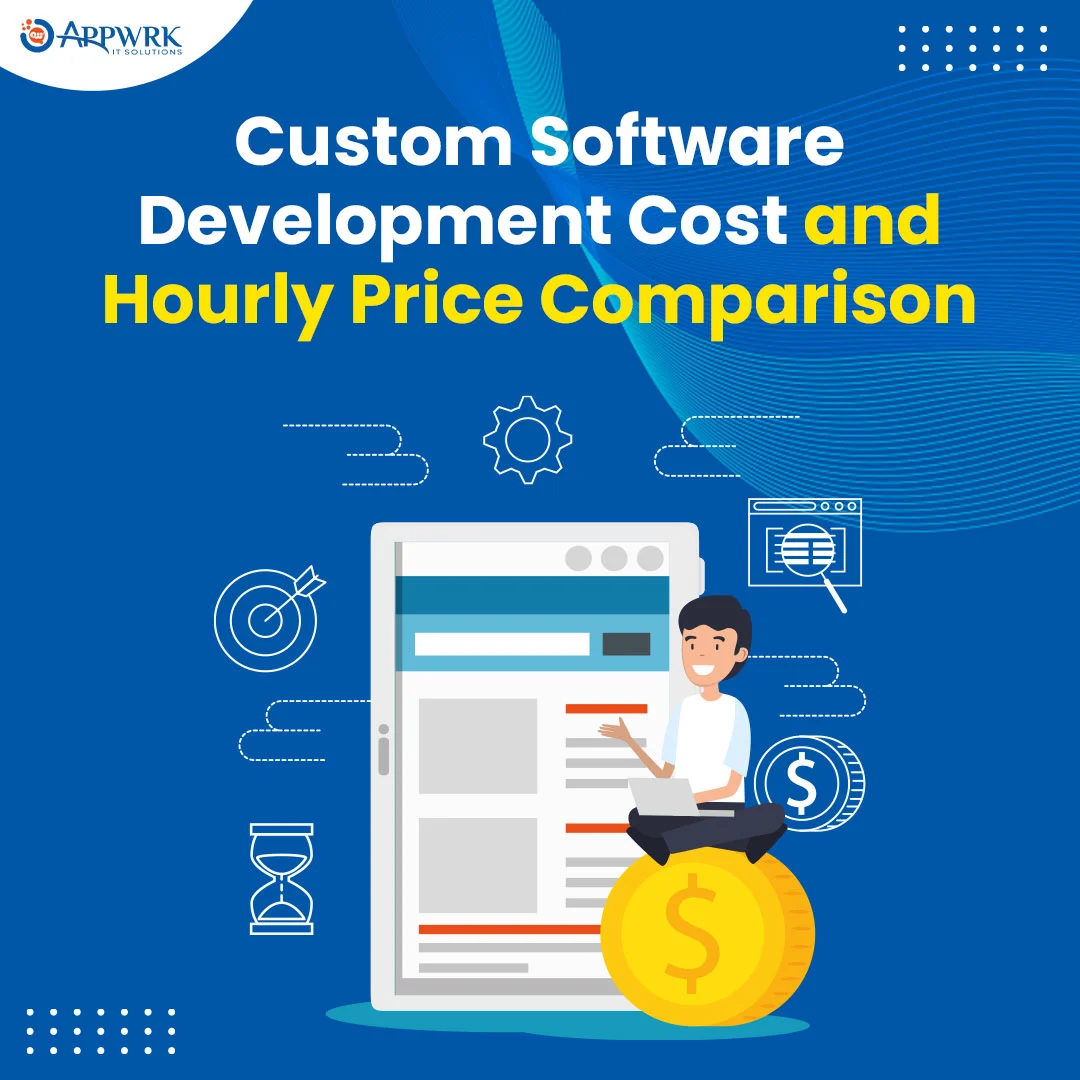How Much Does Website Migration Cost?
Have you decided to migrate your website? We know that this decision is triggered by various factors such as the growth of your online business, adding more features, changes in your design goals, etc. Whatever your reason or purpose, one question stuck to your mind is- “How much does website migration cost?”. If you are looking for the answer to this question, this article will surely help you. It covers everything about website migration, from what is migration and why it is needed to different migrations and their cost. In the end, we have covered some valuable tips which will support you to achieve successful website migration.
We know you are curious to know about How much website migration costs. But before diving deep to uncover it, we will first discuss website migration and why you need it, as the cost of site migration changes with its purpose. For example, do you want to change the whole design and UX or just want to furnish the content or structural part of the site, accordingly the cost of migration will occur?
Table of contents
- What is website migration, and why do you need it?
- Main reasons for website migration
- How much does website migration cost?
- Process of website migration
- Types of website migration
- Average website migration cost
- Essential points to ensure your website migration is a success
- Bonus tips: Common mistakes while website migration
- Final take Away
- Frequently Asked Questions
What is website migration, and why do you need it?
Website migration is the process of moving a website from one environment to another. In other words, the transfer of a website from one host to another is called website migration. In this transfer process, all your old web pages are redirected to new pages to reduce the impact on the ranking of your website. The term site migration has different interpretations for SEO professionals, developers & designers. For SEO professionals, migration is an event that impacts the visibility of your site on search engines. In contrast, developers and designers take migration as an act that moves your website from one host to another.
Surprisingly both of them are correct!
There are many different meanings and interpretations in terms of “what actually is site migration”. For some web admins, it is just a hosting change, while for others, it is a complete website transformation from hosting to designing.
To understand it in a better way, let’s take site migration as your brick-and-mortar shop moves to a physical location. Your business moves to new locations, so you have to make arrangements to ensure that your current customers get updated about your new establishment and reach there. Also, make sure that your new location has all utilities to run your business smoothly. Similarly, site migration always confirms that your users can reach the new website and conduct your online business as usual.
Now the question is- why website migration or transformation is needed? Let’s check out the primary reasons why you need a website migration service.
Main reasons for website migration

- New CMS or eCommerce platform- One of the common reasons for migration is website owners want to change their platform and move to a new CMS (Content Management System) or eCommerce platform for better functionality. While changing the platform, the complexity of migration depends on the goals you want to achieve.
- Hosting change- Sometimes, when you are moving a website, you need to change your hosting provider and migrate all your site files and database to a new server. The two main reasons for this transfer are either you found a more cost-effective solution, or you’ve outgrown the capacity of your current hosting.
- Domain change- It is another frequent reason for site migration. Businesses change their domain in case of rebranding or updating their web address. Changing the domain name is exactly like changing your content architecture, as you have to update the site from a fundamental level.
- Platform updates- Many times, you have to make changes to the site with the updates in your website platform. Sometimes the platform upgrades are minor and require little changes like the addition of new features, bug fixes, etc. While other times an utterly new version of the upgrade arrives on the market. In that case, you have to migrate your website to that new version completely.
- Redesigning the website- However, a website redesign may not always result in migration. But quite often required to change the hosting, domain, and platforms. Redesigning your site is an excellent opportunity to analyze the current site layout and content architecture for future improvements.
So we’ve discussed the main reasons, which compel businesses to migrate their website and accomplish better functionality, incorporating new updates, a completely new look and feel to attract new customers, and many more. After knowing the reasons for migration, you would probably be thinking about the overall website migration cost. So without further delay let’s figure out how much website migration costs.
How much does website migration cost?
The cost of website migration directly depends upon the reason for migration and the purpose you want to achieve through migration. To calculate the cost of migration, it is advisable to understand the process and type of website migration. When you know exactly the website transfer processes, only you can estimate the cost of website migration. Similarly, the cost differs with the type of migration you want to achieve. Hence, we will discuss both the process of website migration and the types of migration to get our answer to how much a site migration service costs.
Process of website migration
1. Planning
Planning is the foremost step of website migration, Wherein you decide what is going to change and what is going to impact. At this stage, define the goal of migration, which will help you to evaluate its success. But manage expectations and do convey to the whole team the risk involved in this process. In this way, they are prepared for the outcomes like a drop in traffic, reduced products, etc.
2. Pre-migration preparation & testing
In pre-migration, you prepare all things which you will need in the website migration process. If website migration involves site redesigning, make sure it is done by an SEO expert only. During the redesign, experts should check the below-given things to confirm SEO is intact.
- Meta information
- URL structure
- Body content and heading
- XML Sitemap
- Load time
- Schema
These are just a glimpse; many more other things need to be checked from an SEO point of view. One more vital point to consider while transferring your website is to check for what content is impacted. The best way to do this is to create a list of what content you have using Google Analytics, then use this list for comparison after migration. Don’t forget that other media files like images, PDF files, etc., also play a vital role in your SEO success. Check out the below ‘Google merchant center analytics report’, where you can see information related to each page.

After doing all preparations now, it’s time to do pre-migration testing. Keep everything on the test and make sure you are ready for launch.
3. Launching
Now the actual day of migration has come. If you have already done pre-migration testing correctly, nothing to worry about in the launch stage. But still, a few things need to be checked from your end to ensure the success of site migration. Those are
- HTTP authentication
- Check for any robots with no index directives
- Check for any Robots.txt disallow
Now update the DNS record to point them to the new environment.
4. Post-migration review & follow-up
The launch is done, but your work is not yet completed. Now it’s time to check everything is working properly in the new environment. This is the time to decide whether to move forward or roll things back. Go through the below checklist and make sure that everything is working properly.
- Test your top-performing pages and confirm that they are working correctly.
- Check for the new robot.txt on the new website; it gives the right access to the right crawlers or not.
- If you are changing the domain, ensure that if robot.txt of the old website provides search engine access, they should follow the redirects.
- Go through the SEO checks once again to see if the SEO is intact or not.
- Check that the new XML sitemap is correct.
- The content report we generated from Google Analytics in premigration preparation compares it with the new report after launching.
5. Success evaluation
To evaluate the success of your website migration, ask these questions to yourself.
- Are all the consents addressed?
- Were all the goals met?
- How soon can you recover the negatively impacted things?
- What things do you need to improve?
Based on these questions, evaluate your website migration’s success and plan for improvement if required in certain areas.
Types of website migration
The major type of website migration is given below:
1. CMS TO CMS website migration
If your website builds with CMS and you wish to move it to another CMS for better functionality and features.
2. CMS to website builder migration
Moving your website from Content Management System to website builders. This migration is because the website builders are easy to operate and need no prior knowledge of coding.
3. Hosting to Hosting website migration
Switching between hosting is quite common. This type of site migration service is done to get better pricing, utmost security, perfect load times, and 100% uptime rates.
4. Protocol change
An example of protocol change is migration from HTTP to HTTPS.
5. Domain name change
When a business is rebranding, it switches from one domain to another domain, for example- wwwatlas.com to wwwmybusiness.com.
6. Site Structure change
Structural changes improve the site’s layout, such as URL structure, internal reference, etc.
7. Partial website migration
It includes shifting to a mobile setup, creating a PWA website, indexing applications, etc.
Average website migration cost

The website migration can be done in two ways- you hire a web development company either on an hourly or on a project basis. Out of them, you are less bound to budget on an hourly rate, and hence it comes with more flexibility. While for a project-based website migration service, it is easier to track the cost of distribution work to a team if necessary. Whichever option you choose, the overall cost of transforming the website depends directly on the type of migration and process you follow during implementations. The average cost of website migration is in the range of $300 to $400. It includes general website migration services, content retention, domain name transfer, necessary SEO services, and internal optimization. For any other desired and required changes, you have to pay extra.
Check out the cost of some of the website migration in the below table.
Essential points to ensure your website migration is a success

1. Clarify the scope of your Project- Before doing any type of website migration, define the purpose you want to achieve. The objective can be one or more of these:
- Improving site speed
- Improving conversion rates
- Retaining organic traffic
- Improving engagement metrics
Understanding the scope of the project can help you identify the risk associated with it. You can then plan in advance how to mitigate the risks.
2. Plan when to migrate- It is essential to use your historical data to determine the best time to migrate. From that data, figure out the time when traffic is less so that there is less impact on revenue during the migration phase. For example, if you are a retailer, migrating sites around Christmas is a bad idea, as the chance of losing customers will increase.
3. Don’t hurry up, do one at a time- If you want to change multiple things such as site structure, content, and codebase, try to do only one at a time. Before making more changes to the website, allow time for the previous migration to get adjusted within the organic results. Going this way will help to handle the issue that evolved during the migration more efficiently.
4. Prioritising the high-traffic driving pages- Minimising the changes made to these pages reduces the negative impact of migration. Even in the case of content and structural changes, always make sure that metadata is transferred to avoid any effect on the ranking of these pages.
5. Redirects- Redirects help both users and search engines to find pages that no longer exist. To do so, identify the pages that are changed or no longer exist. Redirect these pages to the most appropriate pages on the new site or the parent category page. To check the redirect is working correctly, keep a record of your previous website crawl and then run through the tool- “Screaming Frog”. If URLs return the 301 response code, your website is redirected successfully.
6. Check internal linking- With the help of the Screaming Frog tool, review the internal linking on your site. This tool will check if all the internal links are working properly or not. If not working rightly, it will affect the user experience. It means the user is clicking on the link and that link is diverting them to an old URL. So, do check for internal linking.
Bonus tips: Common mistakes while website migration
- Not having a proper plan- Without any purpose for migration, you will not be able to figure out what will change and what risks or issues will emerge as a result of it.
- Forgetting Backups- Always make sure to have a backup of every stage or step of migration. In case any step goes wrong, you can step back to the original setup of your website.
- All Robot access getting wrong- Ensure that correct files are allowed and disallowed in the robot.txt files so that search engines crawl only valid pages.
- Ignoring canonical tags and redirects- Whichever type of website migration you are going for, if you’re changing URLs, always take care of redirects and updating canonical tags.
- Forgetting to update information off-site- After carrying out your website migration service, don’t forget to update the changes on the off-site properties like social media profiles, business directories, Google my Business, or more.
- Not checking for errors- Check for errors before, during, and after migration. In this way, you can minimize mistakes by fixing them along with the migration process.
Final take Away
Website migration is not as easy as it seems. We have to take care of various factors from planning to executing to achieve successful migration. All these factors add up to the cost of website migration. After reading this article, we are sure you can answer the question-” How much does website migration cost?” We have covered almost every aspect related to website migration, which will help you to determine the average cost of your website migration. Now you can easily estimate the budget for your website migration by recognizing the type of migration you want to achieve and the process you have to go through to get it. If there’s anything we missed, let us know we’ll expand our guide on website migration costs. Contact APPWRK.
Frequently Asked Questions
It can vary from a few hours to some days, depending on the type of migration you want to achieve and the complexity of your website.
Yes, it affects, as various on-page and off-page SEO elements get changed during the migration process. We have to check for proper SEO at each step of migration.
To ensure SEO is intact during website migration, follow these steps:
– Rethink your decision to migrate
– Choose the right hosting platform
– Carefully select the server location
– Take the Backup
– Move the website
– Test the new website
– Update the DNS records and TTL
You can move your website from one 24 hour to another by first preparing for the move. This can be done by choosing your new hosting provider, planning how much downtime you might need and informing your users. Next, you can make the move by setting up your new account, transferring your name and migrating your files and database.
The best migration service depends on your specific needs and requirements. However, some of the best services that offer great migration on the whole include SiteGround, HostGator, A2 Hosting, GreenGeeks and Inmotion Hosting.
In order to choose the best site migration service, you need to look into certain factors like their pricing, data security, which platforms they support, if they offer end-to-end services, reviews and if their service can meet your specific needs.
Related Links
10 SEO BEST Practices to Boost Your Website Ranking in 2022
Top Website Maintenance Strategy
How to Build Blog Websites With Webflow?
How to Migrate WordPress Websites to Webflow?
How Recruitment Agency Website Design Can Scale Your Business?
How to make SEO friendly websites?
About The Author







 Free Quote
Free Quote
















































